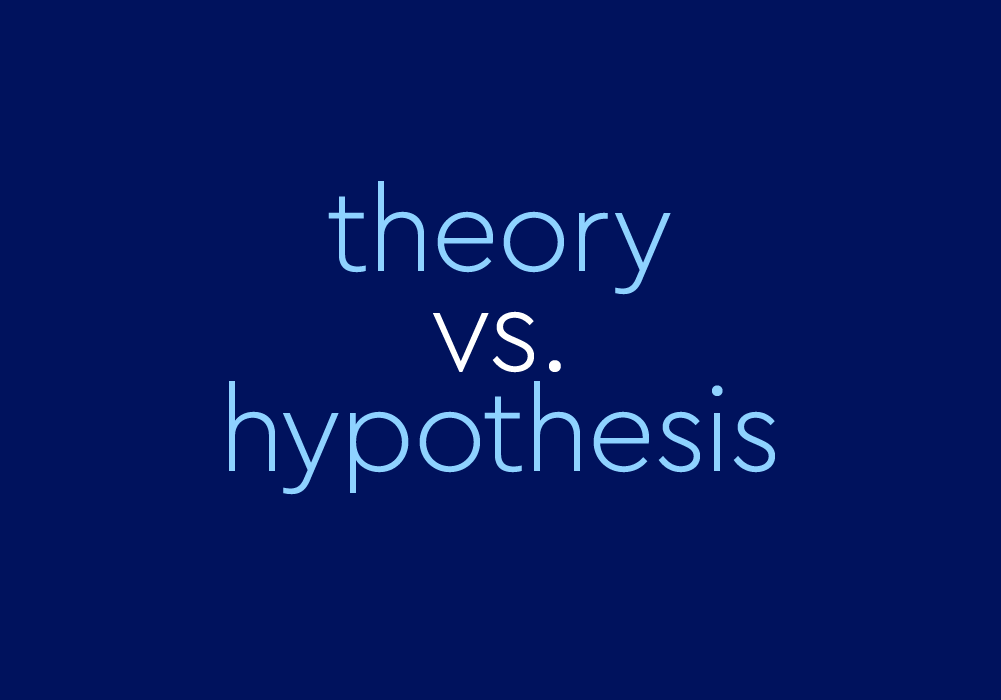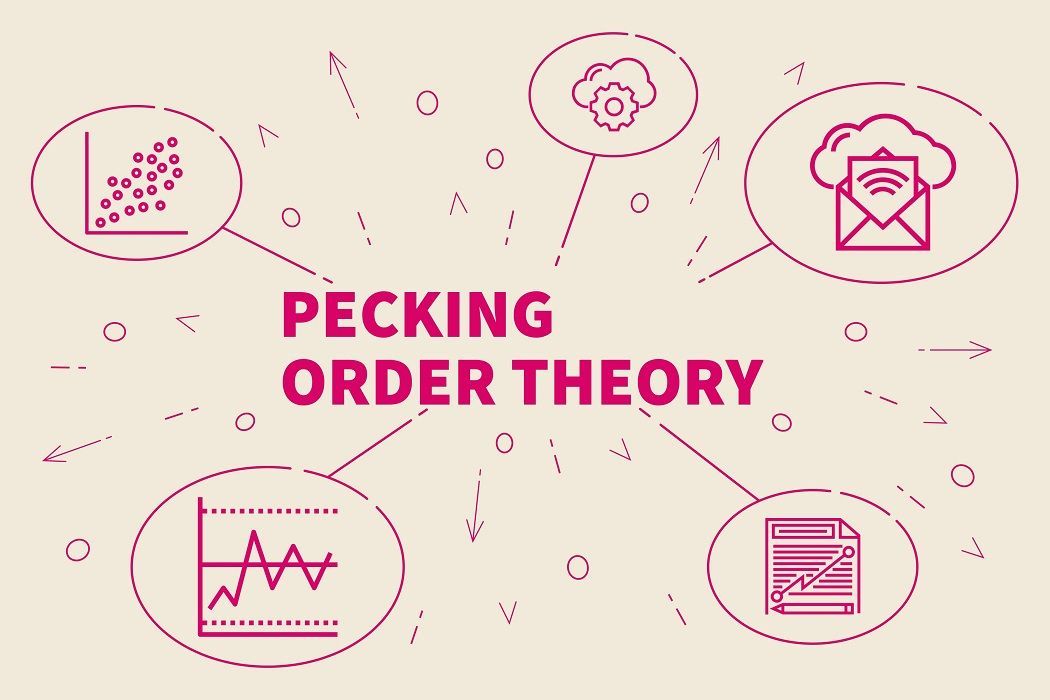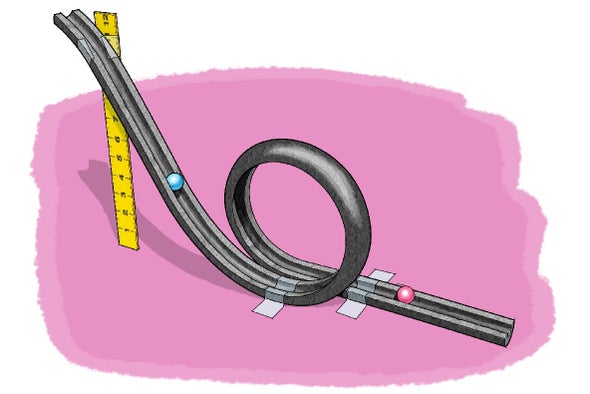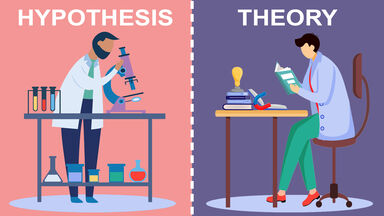Which Statements Describe Scientific Laws but Not Theories or Hypotheses
A factual statement about how something will behave. Hypotheses Theories and Laws Assignment.

Scientific Theories Advanced Read Biology Ck 12 Foundation
They are likely to change as new evidence is discovered.

. Scientific laws explain things but they do not describe them. None of the above Which of the statements below does not accurately describe the attributes of a hypothesis. Science laws are based on evidence while science theories are not science theories involve only biology while laws involve all types of science science theories involve mathematical equations while science laws are based on observations.
Parts of theories cannot be disproved but new parts can be added. They have not yet been tested. Scientific laws were theories that have been tested proven and adopted as laws.
Basics of the Scientific Method. Which statements correctly describe theories. A hypothesis poses a preliminary explanation for a series of observations.
1 For every action there is an equal and opposite reaction. This is because laws are actually theories that have been tested and proven over time. A theory refers to a scientific explanation that is strongly supported by a variety of experimental data.
The law of universal gravitation states that both mass and distance of objects affect the gravitational force between them. F frequency 604 kHz 604 x 103 Hz. One way to tell a law and a theory apart is to ask if.
A scientific law generalizes a body of observations. Theories are all of them tested with the scientific method in order to be accepted or refuted then Laws are tested and are observable by any means all around the globe the only option that is actually correct would be that Theories are not opinions because they are scientific statements that can be tested. A possible explanation of a scientific question that is testable.
Check all that apply. Theories are not opinions. Which statements describe scientific laws but not theories or hypotheses.
297234 Public Domain via Pixabay. A well-tested explanation of a set of observations. They are considered to be proven facts.
Which statement best describes the term theory as used in the gene-chromosome theory. Laws are not typically revised since they are universally observable. The correct answer is D.
Scientific laws are less common than theories. All theories that scientists could discover have already been written. A Radiowave wavelength λ cf.
Check all that apply. Gravitational force decreases as distance between the objects increases. A hypothesis summarizes the observations made during an experiment.
Theories can be revised or replaced as new evidence comes to light. Scientifically disproven beliefs can still be held to be true. Scientific laws are statements that describe regular occurrences in nature.
Science Education Review 131 2014 17 A law or rule or principle is a statement that summarises an observed regularity or pattern in nature. Laws are a statement of fact while theories are a statement of opinion. Laws describe what happens when certain conditions are met.
Scientific Law vs. A A scientific theory describes a pattern of observations while a scientific law is an educated guess based on observation. Scientific laws explain the principles underlying a series of observations.
Laws explain why phenomena exist while theories explain how. Check all that apply. An embedded theory is a theory that is supported by much convincing evidence and that.
Einstein created a new theory because his explanation of the interaction between light and gravity provided unity amongst many facts. Theories and laws are the same types of rules about how nature works. A statement that is not scientifically provable in the same wa y as facts laws hypotheses or theories.
Gravitational force increases as the mass of the objects increase. Theories are one of the pinnacles of science and are widely accepted in the scientific. Which statements describe scientific laws but not theories or hypotheses.
They do not provide explanations for why they are true. At the time its made no exceptions have been found to a law. Successfully proven hypotheses can lead to either scientific theories or scientific laws which are similar in character but are not synonymous terms.
A scientific theory is a set of statements that when taken together attempt to explain a broad class of related phenomena. Laws are a prediction of phenomena while theories are an explanation. Testable hypotheses that lead to experiments usually describe a relationship between.
As we know Radiowave speed in the air c 3 x 108 ms. It also allows scientists to make predictions of what they should observe if a theory is trueScientific theories are testable. Scientific laws are not.
A scientific theory consists of one or more hypotheses that have been supported by repeated testing. A Height of the antenna in m for a radio station broadcasting at 604 kHz 12417 m. An explanation for why certain laws and facts exist that can be tested to determine its accuracy.
Which statement below correctly identifies the difference between laws and theories. Theories may not consist of conditions. A theory not only explains known facts.
The scientific method involves formulating hypotheses and testing them to see if they hold up to the realities of the natural world. There are laws in the physical and biological sciences but there are more in the physical sciences. C A scientific theory is an explanation that best fits a pattern of observations while a scientific law is an accepted statement that describes a.
A hypothesis must be falsifiable. B Height of the antenna in m for radio stations broadcasting at 1710 kHz 4386 m. A theory is a well-substantiated explanation of an aspect of the natural world that can incorporate laws hypotheses and facts.
In 1917 after developing the concept of relativity Einstein described how his findings supported. They are the bases for experiments instead of the results. Laws describe phenomena while theories explain why phenomena exist.
Theories develop over time as new scientific evidence is discovered. Why are these statements considered scientific law and not scientific theory. B A scientific theory is based on a few experiments while a scientific law is based on many experiments.

Scientific Theories Ck 12 Foundation

What S The Difference Between A Fact A Hypothesis A Theory And A Law In Science Latest Science News And Articles Discovery

These Scientific Theories Were Accepted Once But Were Later Proven Wrong

Theory Vs Law Basics Of The Scientific Method 2022 Masterclass

Descriptive Research Definition Types And Examples Voxco

Theory Vs Hypothesis What Is The Difference Dictionary Com

Theory Vs Law Basics Of The Scientific Method 2022 Masterclass

Pecking Order Theory Overview Illustration Example

What S The Difference Between A Fact A Hypothesis A Theory And A Law In Science Latest Science News And Articles Discovery

Do You React To A B Complex Monique Attinger Certified Holistic Nutritionist On Patreon Disease Disorders Clinical Trials

Scientific Law Ck 12 Foundation

Theory Vs Hypothesis Basics Of The Scientific Method 2022 Masterclass

How To Write A Hypothesis Types Steps And Examples Essaypro

Theory Vs Law Basics Of The Scientific Method 2022 Masterclass

Make A Marble Roller Coaster News And Research Scientific American



Comments
Post a Comment